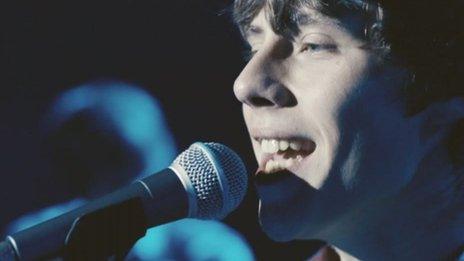Jake Bugg: 'Anyone can get a number one album now'
- Published
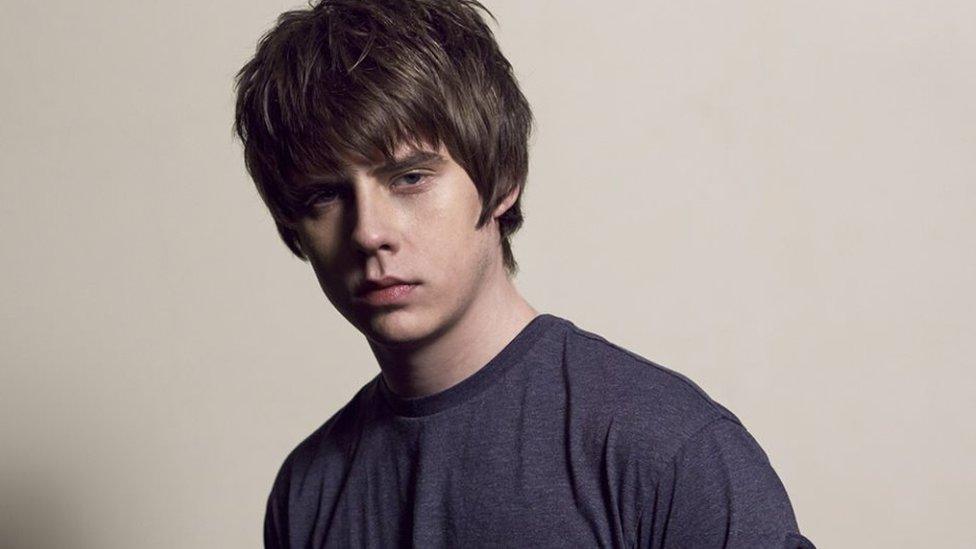
Jake Bugg: "I can't really get excited about anything I see in the charts
Jake Bugg is not, to put it mildly, the sort of person to sugar-coat his opinions.
Despite owning two platinum discs (both for his self-titled debut album), he insists he "can't really get excited" about awards and chart positions.
"Anyone can get a number one now," he says, dismissively. "You only have to sell, like, 20,000 albums or something.
"If you speak to another band and you say, 'Oh, I had a number one album,' they'll be like, 'yeah, so did we, and John had one last week as well.' It's not really an achievement any more."
"You know, The charts are the charts. I can't really get excited about anything I see in them."
Nonetheless, the Nottingham-born star has described his third album - out this week - as a "make or break" release.
"This is a pretty brutal industry," he explains. "If your record sales aren't great, you might not get the chance to make another one."
Fittingly, the album's title track, On My One, external, imagines what would happen if he lost it all. "Three years on the road, 400 shows," he sings, "Where do I call home? No place to go."
It's a simple blues lament - just two chords and Bugg's voice - that cleaves to the singer's tried and tested template. But the rest of the album is much more adventurous.
First single Gimme The Love, external marries a buzzing bassline to a shuffling Stone Roses drumbeat, while the string-drenched ballad Love, Hope and Misery, external sounds like a slightly more nasal version of Paolo Nutini.
Both NME and Q Magazine have described the record a "re-invention" but Bugg would rather it was called "a continuation".
"I'm just doing my thing, man."
One year off
Work on the album began in Malibu last year, but the initial sessions were scrapped in favour of Bugg's home demos.
"Weirdly enough, the label preferred my recordings to [the producer] I'd been recording with," he says.
So he went back home and worked on the album in his front room, where the lack of highfalutin studio gadgetry proved to be a source of inspiration.
"In Nottingham there was a Telecaster knocking around and it only had five strings on it. That's what I did Gimme The Love on. It's cool, things like that, because you're very limited in what you can do and that helps. When you've got a blank canvas, it can be a bit overwhelming and you can't really come up with any ideas."
In fact, for the first time, the singer wrote the entire album by himself - laying to rest the claim of inauthenticity that has bugged him (no pun) since it emerged he shared credits with the likes of Iain Archer (Snow Patrol) and Brendan Benson (The Raconteurs) on his first two albums.
He now likens those co-writing sessions to an apprenticeship - "free education" for a musician who taught himself guitar on YouTube.
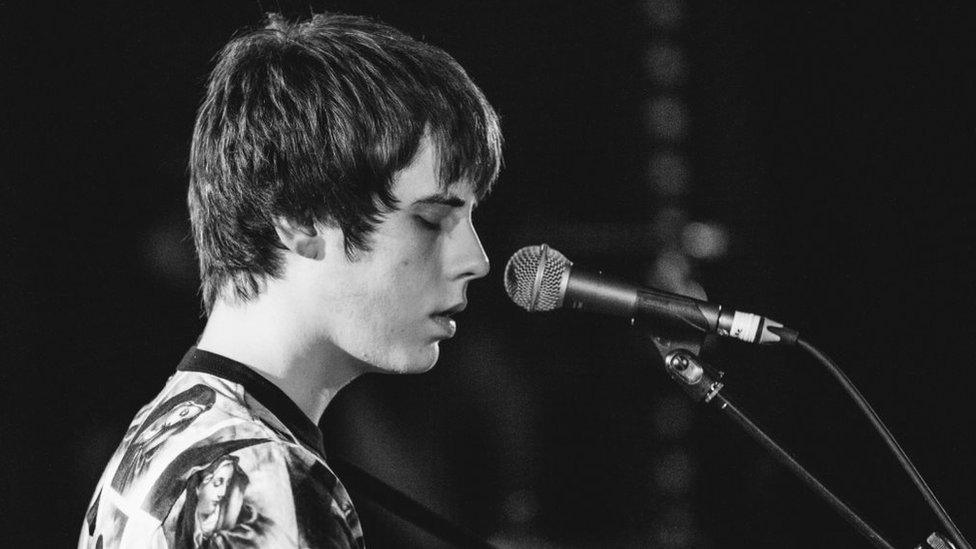
Bugg's blues and skiffle-inspired songs have brought success on both sides of the Atlantic
His playing is noticeably improved on the new record, something he attributes to taking a year off.
"When you're playing the same songs every night, sometimes the last thing you want to do in the day is play your instrument. So the time off helped. I had a chance to mess around with different styles and just practise."
He shows off a supple ability on the R&B-influenced Never Wanna Dance, and breaks out a killer guitar solo on the relationship drama Bitter Salt, external.
The latter track is one of a handful of songs co-produced by Garret "Jacknife" Lee (U2, REM, Taylor Swift), who turned the low-key original into a rollicking blues stomp.
"I'd written it as a folk song. Then I recorded it with Jacknife and the next day I came in and it sounded like that!" says Bugg.
"That can be tough. I don't want anyone messing around with my songs. But what I liked about Jacknife is [that] it was still exactly the same song, it was just in a completely different genre. It's got a Jefferson Airplane vibe about it, which I thought was pretty cool."
'Shy and reserved'
Bugg was only 17 when he first came to fame and he quickly earned a reputation for being surly and uncooperative in interviews. In his first encounter with BBC News in 2012, he frequently sounded like a teenager being asked about their homework (which, essentially, he was).
"If you look back at some of my old interviews, I'm much more shy and reserved," he admits. These days, he's more confident, with a line in acerbic humour - but his skirmishes with the press have made him cynical.
"Sometimes in interviews, you can come across as the guy that's not so nice, or not very pleasant. But a lot of the time it's the person on the other side that made you feel that way. You know, they've pissed you off in some way and then it reflects. I don't know if they do it on purpose..."
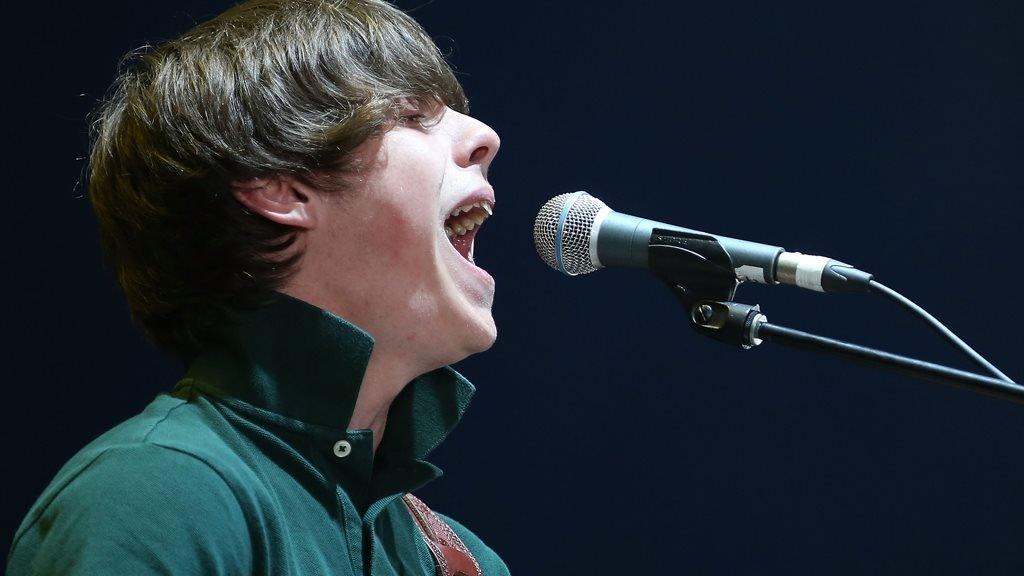
"I just wanted something a little bit heavier on this album," says the star
He grimaces as he talks about being told to "put on a smile" for television appearances.
"Especially in America, you've got to be so enthusiastic or else there's no point in doing it. Or so they tell me. And that can be hard, when you're not feeling like smiling, to put one on. That's just not me.
"I just feel," he concludes, "like the time spent doing a lot of interviews could be used making more music. Then the people doing the interviews can have something to write about. But that's just my take on it."
He makes it clear this is not one of those interviews... but our time is running out, nonetheless.
So, if the charts are no longer a reliable indicator of success, how will Bugg decide whether his new album has been a hit or a miss?
"I guess, for me, it's when you go and play the shows and the festivals and see what kind of crowd you draw. I think that reflects more than the record sales.
"And Gimme The Love's on Match Of The Day quite a bit, so I'm happy with that. I'll take that."
On My One is out now on Virgin EMI

- Published13 October 2015
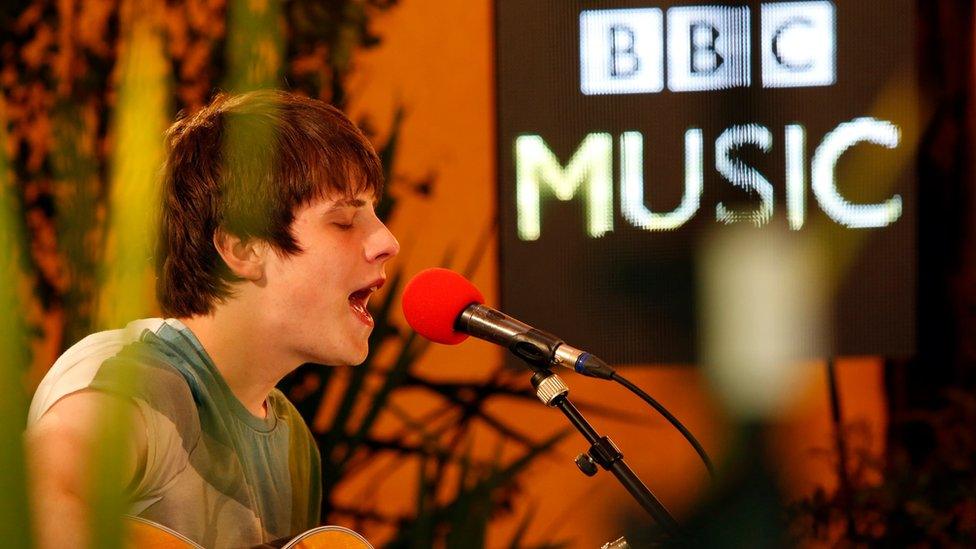
- Published15 October 2012
- Published14 November 2013
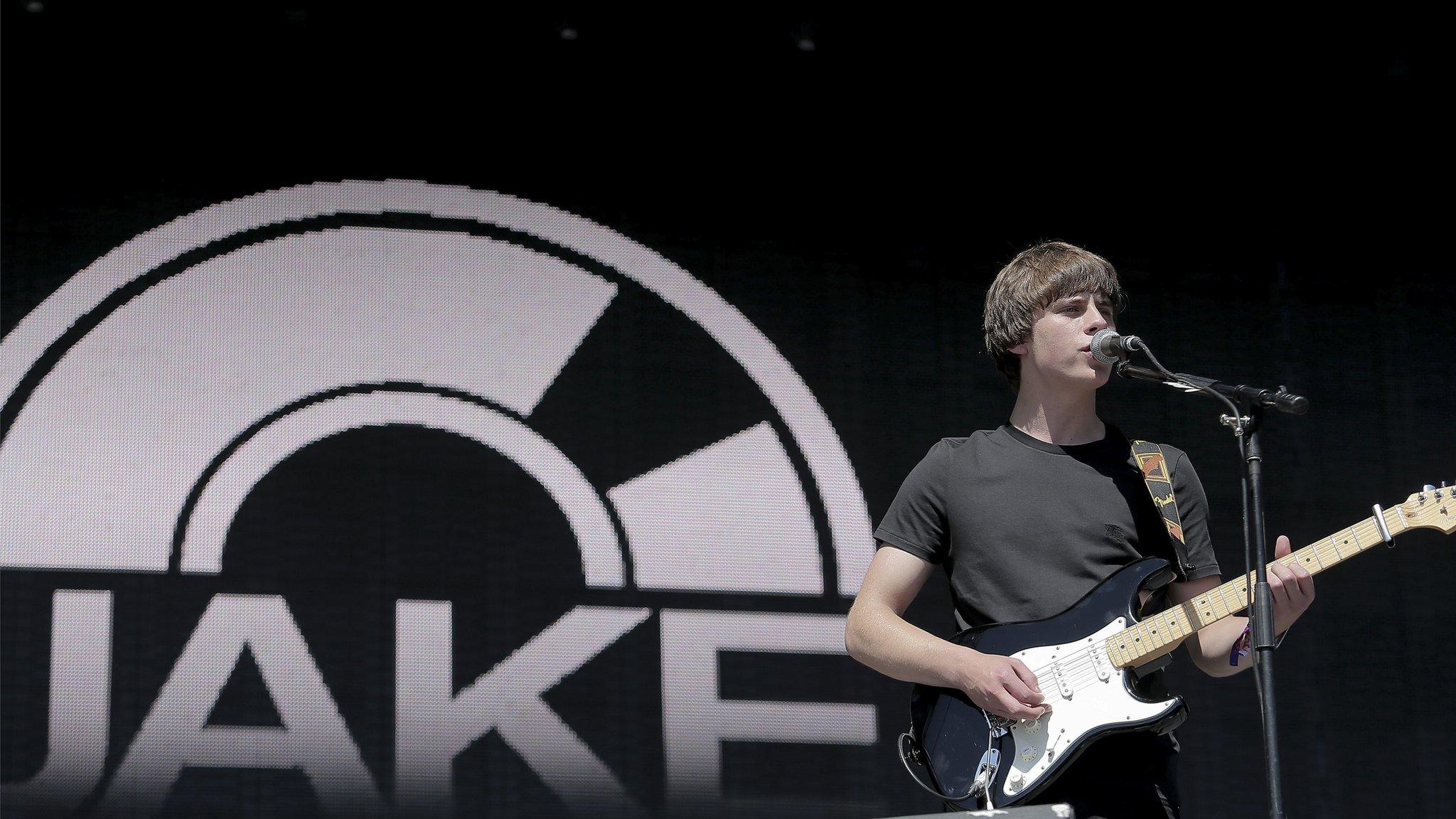
- Published16 May 2013
